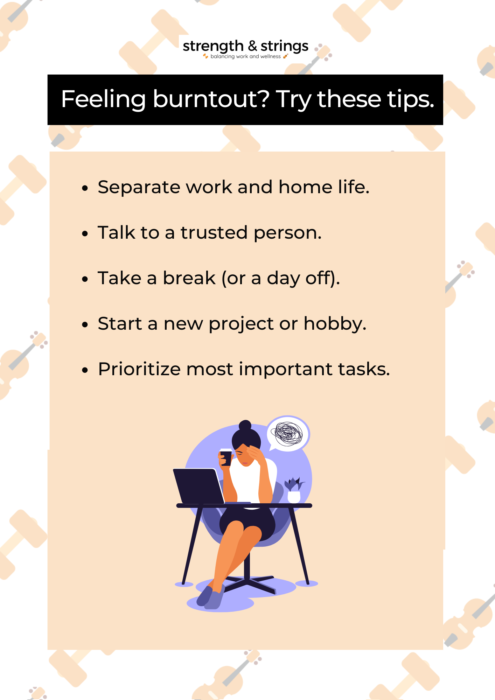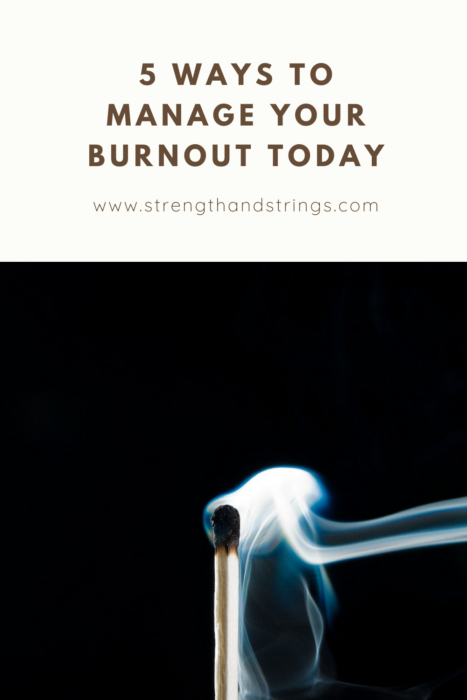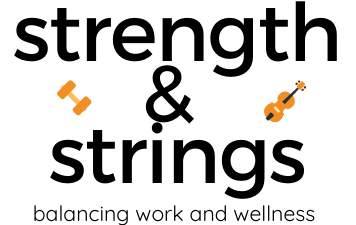
5 tips for managing your burnout today
Have you ever experienced burnout? You most likely have.
According to a 2021 survey, over 50 percent of respondents stated that they were experiencing burnout. Within that group, about 67 percent believed that their burnout has increased due to the pandemic. Reasons for this are a lack of work-life balance, the pressure to work longer hours and less flexibility in scheduling and taking paid time off (PTO).
After some reflection, I realized that I have experienced burnout several times during my teaching career. However, the worst experience was during the first year of the pandemic. During the initial shutdown, I had a hard time creating a balance between work and home life.
A few months later, it progressively became worse as I continued working from home. Over time, my burnout decreased my motivation to teach. The effects of burnout spilled into other parts of my life, including completing my graduate school portfolio and completing daily tasks. At one point, my burnout was so severe that I needed to take a week off from the gym and stop working on my graduate portfolio altogether.
You are probably reading this article because you think you are experiencing burnout. If you are tired of feeling this way and want to reclaim your life, continue reading to learn more about burnout and how to manage it today!
What is burnout?
state of emotional, physical and mental exhaustion caused by excessive and prolonged stress; occurs when you feel overwhelmed, emotionally drained, and unable to meet constant demands.
helpguide.org
Are you experiencing burnout?
In addition to feeling overwhelmed, emotionally drained and not being able to meet constant demands, individuals experiencing burnout may experience:
Symptoms:
- disengagement
- lack of motivation
- feelings of helplessness
- fatigue
- isolation from others
Causes of burnout
- Lack of control (e.g. schedule, resources, etc.)
- Constant social comparison
- Monotonous or chaotic job activities
- Lack of work-life balance
- Negative workplace dynamics (e.g. micromanagement, exclusion)
- Lack of social support

Risk-factors for burnout
Although burnout is often caused by your job, lifestyle choices and personality traits can be a factor as well.
- having a Type A personality
- working in a helping profession such as education
- professions that have heavy workloads and long hours
- a feeling of a lack of control at work
- “Live to Work” mentality
How is it different from stress?
Although burnout is caused by stress, the body experiences them differently. Stress is caused by too much of something and overstimulates the mind and body.
Burnout on the other hand is the opposite. When a person is experiencing burnout, they are mentally exhausted and unmotivated. Stress is also instantaneous while burnout is a gradual process.
Once you recognize the symptoms of burnout, it is important to manage it right away. Ignoring it and trying to push past it will only make it worse.
Long-term effects of burnout
If left untreated, high levels of burnout can lead to:
- High stress levels
- Insomnia
- Sadness, anger or irritability
- Alcohol or substance misuse
- Cardiovascular disease
- High blood pressure
- Type 2 diabetes
- Weakened immune system
How can you reduce and prevent burnout?
- Separate work and home life.
- Talk to a family member or trusted colleague.
- Take a break (or a day off).
- Start a new project or hobby.
- Prioritize most important tasks.

How I overcame my burnout
During the height of my burnout, I decided to take one Saturday off from work-related assignments. That day, I took a closer look at why I was experiencing burnout and thought about what I wanted the remainder of virtual teaching experience to look like.
At the time, I was overwhelmed with completely overhauling my teaching methods and had the same routine everyday. On top of that, it often felt like no matter what I did, there was always more to do.
I started with setting stricter boundaries and only focusing on my most important tasks. When those things were established, I worked on incorporating more hobbies and downtime into my schedule. Once I started doing these, I started to feel better. I also implemented more of these tips to reduce and manage my stress levels.
Final considerations
In addition to implementing these tips, make sure you are exercising, eating a balanced diet, and getting enough sleep.
For more support, check out my new e-guide Banish the Burnout which outlines the step-by-step approach I used to identify, manage and prevent burnout from reoccurring. Since my experience and following my methodology, I have not experienced burnout since.
Are you experiencing burnout? What are you doing to avoid burnout?






